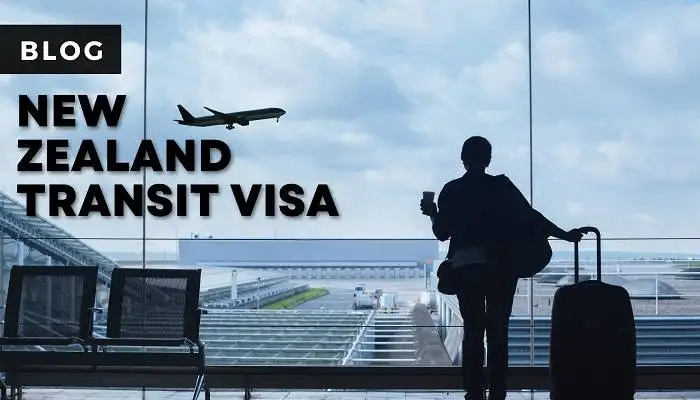Greetings, wanderlust-seekers and adventure enthusiasts! Brace yourselves for an informative journey into the uncharted territories of New Zealand visa policies amidst the tumultuous era of COVID-19. As the world grapples with this unprecedented crisis, we find ourselves pondering its profound effects on our dreams of exploring the Land of the Long White Cloud. Fear not, dear readers, for in this enlightening blog post, we unveil the intricacies and changes that have shaped New Zealand’s visa landscape during these testing times. So dust off your travel guides, tighten those seatbelts, and join us as we navigate through what you should expect when it comes to pursuing your Kiwi dreams amidst a global pandemic! NEW ZEALAND VISA POST COVID
Overview of New Zealand’s visa policies before COVID-19
Before the global pandemic of COVID-19, New Zealand’s visa policies were relatively straightforward and accessible for international travelers. The country prided itself on its welcoming and inclusive approach to immigration, with a variety of visa options available to suit different purposes and lengths of stay.
Firstly, the most popular visa category was the Visitor Visa, which allowed tourists to enter New Zealand for up to 9 months in a period of 18 months. This visa could also be used for business purposes such as attending conferences or meetings. For those looking to study in New Zealand, there was the option of a Student Visa which granted entry for the duration of their course.
Another significant category was the Work Visa, which had specific requirements depending on the type of work and length of stay. For skilled workers, there was the Skilled Migrant Category Visa that provided a pathway to permanent residency if certain criteria were met. For seasonal workers in agriculture and horticulture industries, there was a dedicated seasonal worker scheme known as Recognized Seasonal Employer (RSE) Work Visa.
Moreover, New Zealand also had various family visas that allowed partners or dependent children to join their loved ones who were living in the country. These included Partner Visas for spouses or civil unions and Parent/Grandparent Resident Visas for parents or grandparents who wanted to live with their adult children in New Zealand. NEW ZEALAND VISA FOR US CITIZENS
Additionally, individuals who wished to invest or start a business in New Zealand had several options under the Business Migration category.
Changes made to New Zealand’s visa policies in response to COVID-19
New Zealand’s visa policies have undergone significant changes in response to the COVID-19 pandemic. These changes have been implemented to ensure the safety of both New Zealand citizens and international travelers, while also managing the flow of people into the country during this unprecedented time.
Travel restrictions were first introduced in New Zealand in March 2020, with border closures and mandatory quarantine measures put in place for all incoming travelers. This meant that only essential workers and New Zealand citizens or residents were allowed entry into the country. As a result, many individuals who had planned on traveling to New Zealand had their visas cancelled, making it difficult for them to enter or leave the country.
One of the major changes made to visa policies was the introduction of new border exceptions. These exceptions allow certain individuals to enter New Zealand even though they do not meet normal immigration requirements. Some of these exception categories include critical health workers, essential workers in industries such as fisheries and construction, and partners or dependents of New Zealand citizens or residents.
In addition to these border exceptions, there have also been changes made to temporary visa policies. For those who are already in New Zealand on temporary visas and unable to return home due to travel restrictions, extensions have been granted until September 25th 2021. This extension is automatic for most temporary visas and does not require any application process.
The COVID-19 pandemic has brought about significant changes in the visa policies of New Zealand, affecting individuals who are seeking visas for various purposes such as work, study, and tourism. These changes have been implemented to ensure the safety and well-being of both the citizens and visitors of the country. In this section, we will discuss the effects of these policy changes on individuals seeking visas for different purposes.
1. Work Visas:
The pandemic has caused a major disruption in global economies, resulting in job losses and financial instability for many people. This has led to a decrease in demand for skilled workers in New Zealand, prompting the government to introduce new regulations for work visas. As a result, individuals seeking work visas may face stricter eligibility criteria and may experience delays in processing times.
In addition to this, there have been restrictions placed on certain industries that were heavily impacted by the pandemic, such as hospitality and tourism. This means that individuals looking to obtain work visas in these sectors may face more hurdles than before.
2. Study Visas:
New Zealand is a popular destination for international students due to its high-quality education system and safe environment. However, with travel restrictions still in place due to COVID-19, international students may face challenges obtaining study visas.
One major change that has been introduced is the requirement for students to provide evidence of their ability to study online if they are unable to enter the country due to border closures. This poses difficulties for some students who may not have access or resources required for online
Conclusion
In conclusion, the COVID-19 pandemic has had a significant impact on New Zealand visa policies. As border closures and travel restrictions continue to evolve, it is important for individuals planning to visit or migrate to New Zealand to stay updated on any changes in visa requirements. By following these tips and staying informed, you can navigate through the current situation and ensure a smooth process for your journey to New Zealand. We hope that this article has provided valuable insights into what you should expect when applying for a visa during this time of uncertainty. Stay safe and informed!
